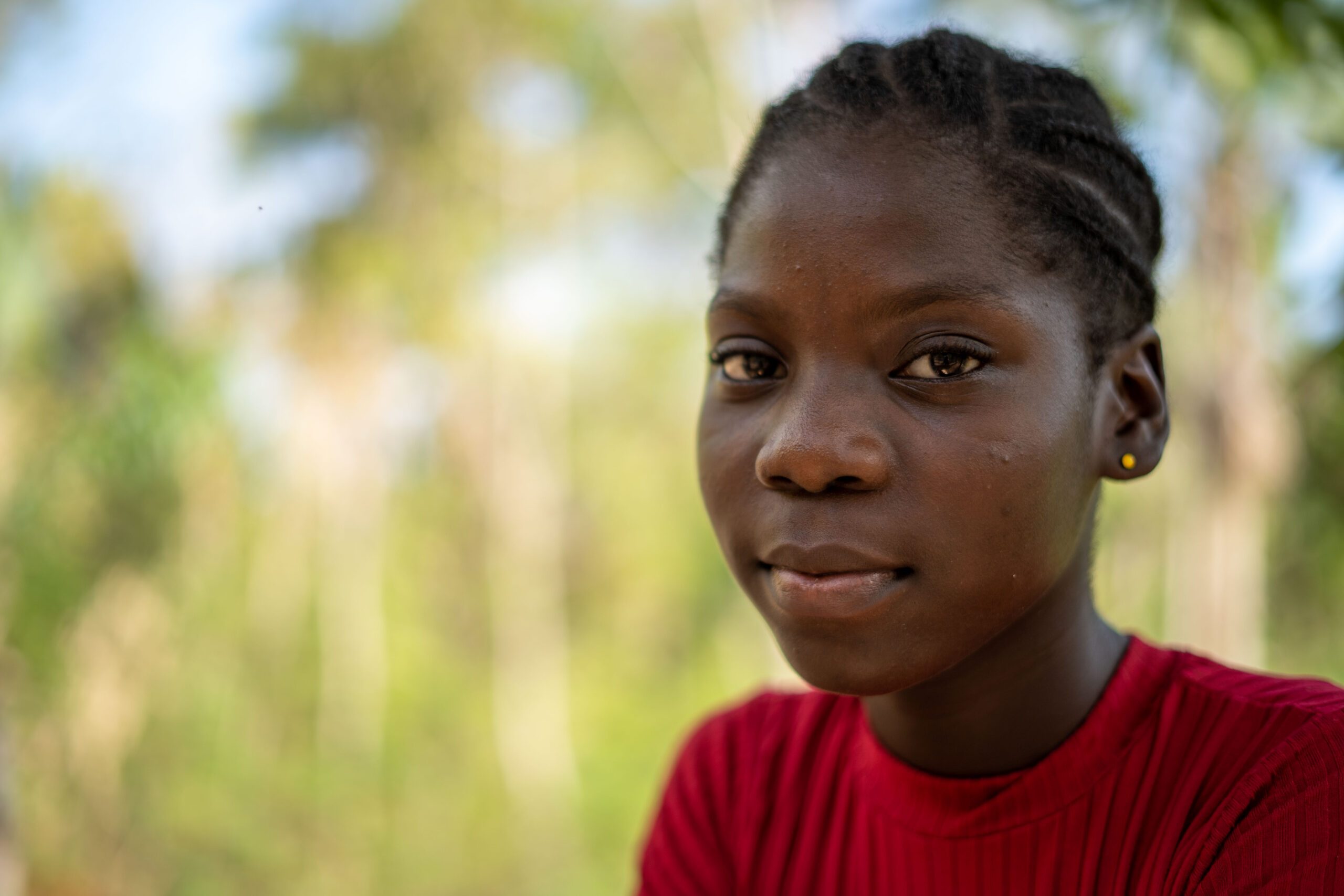On world menstrual health day, worsening humanitarian crisis severely impacting on girls in Haiti
29 May 2023On International Menstrual Health Day, Plan International is shining a spotlight on the often forgotten impacts of global humanitarian crisis on women and girls.

For 13-year-old Sofiana the hunger crisis has meant that managing her period has become increasingly tough.
In Haiti, where widespread hunger and gang violence have led to an unprecedented humanitarian crisis, many girls and women are unable to afford basic menstrual hygiene products such as sanitary napkins amid soaring food prices.
Daphne de Bordes, Acting Director of Plan International Haiti, says the crisis in the country is making girls and women increasingly vulnerable.
“In Haiti, widespread hunger and escalating violence by armed groups is having a devastating impact on the population, especially on girls. During the crisis, girls face perilous journeys to access clean water and proper menstrual hygiene, and lack the family income to purchase menstrual health supplies. Menstrual health cannot be neglected,” says de Bordes.
Globally, at least 500 million girls and women – around one in four women of reproductive age – do not have access to what they need to manage their periods, be it sanitary pads and/or clean toilets.
With the world mired in the most devastating hunger crisis in history – at least 345 million people in 82 countries are acutely food insecure and 50 million are on the brink of starvation – girls continue to be the worst affected.
For 13-year-old Sofiana, who lives in Hait’s South East department, the hunger crisis has meant that managing her period has become increasingly tough. “I sometimes find it difficult to buy sanitary pads as I don’t have enough money,” she says.
Many girls in Haiti face daily difficulties in managing their menstruation with dignity, such as having to make long and dangerous journeys to access clean water. “It is very difficult to get water in this area. The stream is very far away and it can take us about an hour to reach it on foot,” says Sofiana.
In the absence of menstrual health information and support services, many girls face shame and embarrassment at school and at home as a result of their periods. This results in many girls missing school every month when they are menstruating, causing them to fall behind in their education and in many cases even drop out of school.
Sofiana says she has turned to different alternatives to manage her menstrual health. “I don’t feel comfortable when I have my period,” she says. “When I can’t afford to buy supplies, I wear old clothes instead.”
When girls don’t have basic supplies like menstrual pads, they are often forced to use unhygienic materials like old newspapers, rags, earth, sand, ash, grass or leaves. These are uncomfortable and can cause infections. The dangers multiply when clean water is in short supply, making it difficult to wash.
With the world mired in the most devastating hunger crisis in history – at least 345 million people in 82 countries are acutely food insecure and 50 million are on the brink of starvation – girls continue to be the worst affected.
There is evidence that in the world’s worst hunger hotspots, menstrual health is falling further down the list of priorities. Plan International is in these territories scaling up support for girls and their families.
Since the start of the response to the hunger crisis in Haiti, Plan International has delivered more than 1,000 hygiene kits to households, including sanitary towels, soap, water purification tablets and other items.
“We cannot lose sight of the fact that hunger, health and safety are part of the overall crisis in Haiti, menstrual health is also a priority. We believe that all girls and women should enjoy their sexual and reproductive health and rights, and that no one’s well-being should be limited by their period,” says de Bordes.
Categories: Emergencies, Sexual and reproductive health and rights


